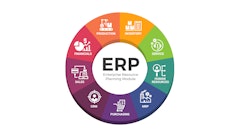New York — January 7, 2008 — Nearly two-thirds of supply chain professionals in the chemicals industry say their companies have no formal processes for identifying and sharing supply chain best practices, according to a study released last week by Accenture.
The 2007 Global Chemical Industry Supply Chain Best Practices Study is based on a survey of 400 supply chain professionals in Europe, North America, South America, the Middle East and Asia. The study is the second in a series focusing on the increasing importance of the supply chain in the chemicals industry; the first study was released in 2005.
While only 37 percent of survey respondents in this year's survey said their companies have formal processes for sharing best practices, even fewer — 11 percent — said that best practices are documented, translated into standard operating procedures and measured at their company. Even worse, only 4 percent said their companies have captured best practices in one place and made them available to all supply chain professionals within their organization.
"Sharing of best practices has improved over the last two years, but there are still areas for improvement," said Christopher Lange, study author and a senior executive in Accenture's Chemicals practice. "While companies have traditionally looked at the supply chain as a way to cut costs, they now look at it as a strategic and financially important part of the business and a way to generate value and revenue. In a competitive global landscape, sharing best practices will be critical to increasing performance."
The 2007 study results indicate that supply chain professionals are doing better at collaborating and communicating with customers than they were two years ago. For instance, the percent of supply chain professionals who said they collaborate and communicate with customers to make sales forecasts has more than tripled in the past two years, from just 7 percent in 2005 to 24 percent in 2007.
Likewise, supply chain professionals are also improving at collaborating and communicating internally. More than one-third (35 percent) of supply chain professionals in this year's survey reported robust information-sharing within their company, up from one in five (21 percent) in the 2005 survey. In the critical sales and operations planning areas, more than half (53 percent) of respondents this year said that their business units routinely share data with each other, up from 41 percent in 2005.
The study also found that while supply chain training is more prevalent across the industry today than it was two years ago, supply chain professionals do not think they are getting enough of it. While the number of respondents who said they receive no supply chain training has decreased significantly in the past two years — from 78 percent in 2005 to 11 percent this year — only 29 percent said they are satisfied with their current level of training.
"Companies have invested in improving their supply chain, but if their training is ineffective or informal, their professionals will lack the high level of knowledge and skills to drive value and sustain the changes they're looking for," said Lange. "Training is important because it enables supply chain professionals to examine their company's practices and performance and identify opportunities for improvement."
Other areas examined in the 2007 study include hiring, procurement, commercial and supply chain interaction, demand planning and supply chain resilience. Additional details on the results are available at www.SCMstudies.com.


















